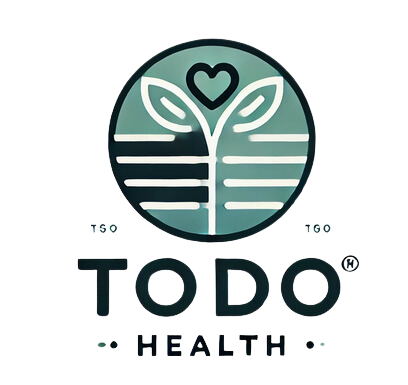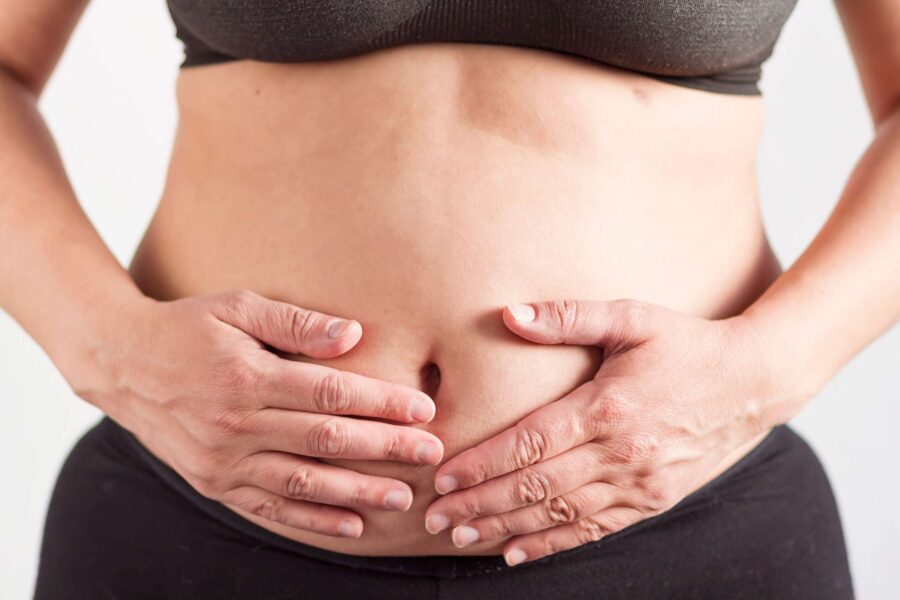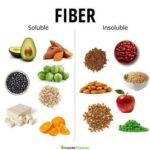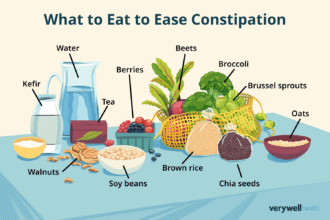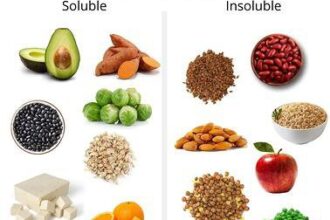You’ve swapped fast food for greens, cut down on processed snacks, and started cooking meals at home. You’re doing everything right—or so you thought. Yet, every time you eat, there it is again: the bloated belly, the tight waistband, the uncomfortable fullness. It’s confusing and frustrating. After all, you’re eating healthy. So why do you still feel bloated?
This question is more common than you might think, and it doesn’t mean something is wrong with your health journey. Bloating, even on a clean diet, is often a sign that your body is adjusting, reacting, or struggling to digest certain “healthy” foods. Understanding the reasons behind this discomfort can help you make more mindful food choices and enjoy meals without the bloat.
1. You’re Eating Too Much Fiber, Too Fast
Fiber is one of the most praised components of a healthy diet. It aids digestion, stabilizes blood sugar, and supports heart health. But increasing fiber intake too quickly can backfire. Vegetables, legumes, whole grains, and fruits—all staples of a clean diet—are high in fiber. If your body isn’t used to it, fiber can ferment in your gut, producing gas and leading to bloating.
What to do: Gradually increase your fiber intake. Give your gut time to adapt by adding fiber-rich foods slowly and drinking plenty of water to help it move through your digestive system.
2. You’re Sensitive to Certain Healthy Foods
Not all healthy foods agree with every body. Some of the most nutritious options—like broccoli, kale, onions, garlic, cauliflower, apples, and lentils—are high in FODMAPs (Fermentable Oligo-, Di-, Mono-saccharides And Polyols). These are short-chain carbohydrates that some people can’t digest well. Instead of being absorbed, they ferment in the gut and create gas.
What to do: Try a low-FODMAP approach for a few weeks and see if symptoms improve. Reintroduce foods slowly to identify which ones cause bloating.
3. You Might Be Eating Too Fast
In today’s world, meals are often rushed. Eating quickly can cause you to swallow air, which gets trapped in your stomach and intestines. It also doesn’t give your brain time to register fullness, leading to overeating—which adds more volume for your digestive system to process.
What to do: Slow down. Chew each bite thoroughly. Aim for at least 20–30 minutes per meal to give your digestive system a fair chance.
4. Healthy Doesn’t Mean Low-Sodium
Just because you’ve ditched junk food doesn’t mean your meals are low in sodium. Many pre-packaged “health” foods like veggie burgers, soups, whole wheat wraps, and even certain health bars can still be high in salt. Excess sodium causes water retention, which often feels like bloating.
What to do: Read nutrition labels carefully and aim for fresh, home-cooked meals. Use herbs and spices to flavor your food instead of relying on salt.
5. You’re Consuming Too Many Raw Vegetables
Raw vegetables are packed with nutrients, but they can be hard to digest. Cruciferous veggies like broccoli, cabbage, and cauliflower are especially known for causing gas and bloating when eaten raw. Cooking breaks down some of the fiber and makes them easier on the stomach.
What to do: Lightly steam, roast, or sauté your vegetables. If you enjoy salads, pair them with a small portion of something warm and cooked.
6. Smoothies and Protein Shakes Can Be Sneaky Triggers
Smoothies and protein shakes are often loaded with healthy ingredients, but they can be a recipe for bloating. The combination of raw greens, protein powders, nut butters, and high-fiber fruits can overwhelm your digestive system—especially when blended and consumed quickly.
What to do: Simplify your smoothies. Stick to 3–4 ingredients and watch portion sizes. Try to sip slowly rather than gulping it down.
7. Artificial Sweeteners and “Natural” Alternatives
Stevia, erythritol, sorbitol, and xylitol are common in health foods and beverages labeled “sugar-free” or “low-carb.” While they may reduce your sugar intake, many of these sweeteners aren’t fully absorbed in the digestive tract. Instead, they ferment in the gut, leading to gas, bloating, and sometimes diarrhea.
What to do: Limit your intake of artificial sweeteners and check labels for hidden sugar alcohols.
8. Your Gut Microbiome Is Changing
When you shift to a healthy diet, you also shift the balance of bacteria in your gut. This is generally a good thing, but during the transition, your body might react with bloating, gas, and discomfort. It’s a sign that your gut flora are adjusting to the new fuel you’re feeding them.
What to do: Be patient. Stay consistent with your diet, hydrate well, and consider adding fermented foods like yogurt, kefir, sauerkraut, or kimchi in small amounts.
9. You Might Be Drinking Too Much Water During Meals
Hydration is essential, but chugging water during meals can dilute stomach acid, making digestion harder and slower. This can lead to food sitting in the stomach longer, causing bloating and discomfort.
What to do: Drink water between meals, not during. Small sips with food are fine, but avoid downing a full glass right before or during your meal.
10. Hormones and Bloating
For many women, hormonal fluctuations throughout the menstrual cycle can cause bloating, regardless of diet. Estrogen and progesterone influence water retention and gut motility, often leading to temporary bloating before menstruation.
What to do: Track your cycle and see if the timing of bloating aligns. Foods rich in magnesium (like spinach, almonds, and dark chocolate) can help manage bloating during this time.
Feeling bloated even after eating healthy doesn’t mean you’re doing something wrong. Often, it’s just your body adjusting to better habits, or your gut needing a bit more balance. Small tweaks—like eating slower, cooking your vegetables, watching for food sensitivities, or checking labels—can make a big difference.
Above all, listen to your body. What works wonders for someone else might not be ideal for you. The journey to better health is personal, and bloating is often just one step along the way.
